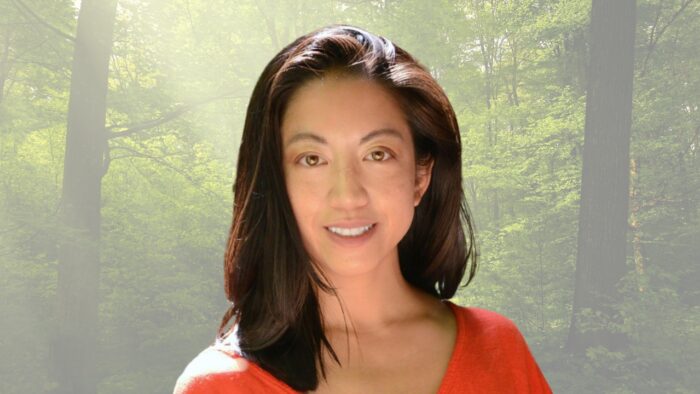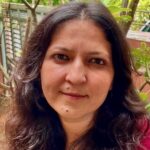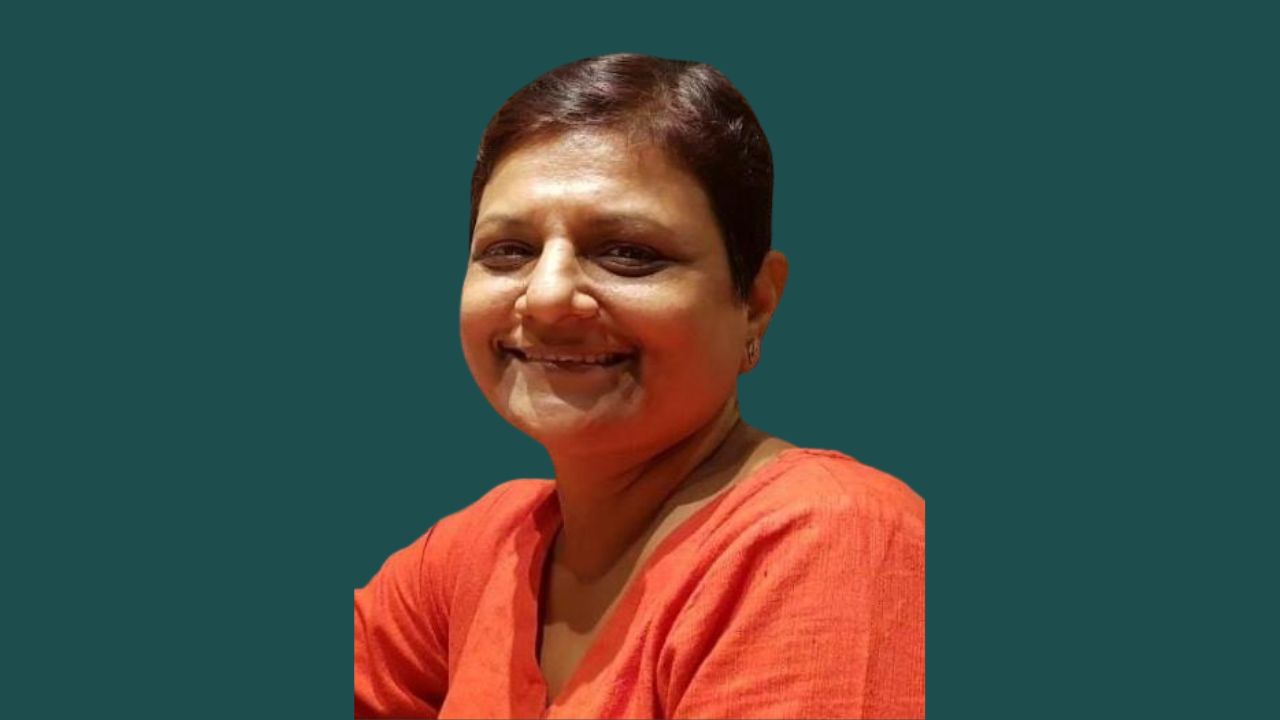Valerie Hwang realised it was time to change her life when she found herself unhappy surrounded by natural beauty in Japan. When she returned home to Long Beach, California, she started practising Ashtanga Yoga and meditation and found Ayurveda. Practising Ayurveda and receiving its benefits inspired her to pursue a career in Ayurveda and she is now a Board-Certified Ayurvedic Practitioner and founded Intrepid Ayurveda to share her knowledge and skill. She share her story with The Center for Ayurveda Studies…
Sophia: How were you introduced to Ayurveda and why did you choose to study and pursue a career in Ayurveda?
Valerie: I was introduced to Ayurveda at a time in my life where I was going through a lot of mental health challenges and personal struggles. I had gone through an intensive meditation retreat and had also started a daily yoga practice, and was looking for a career switch. Although my initial college degree was in counselling and psychological services, I had not pursued counselling after finishing, and instead went into international education, performing arts, and international travel. I had always seen myself in a counselling position, but the conventional system of counselling did not quite resonate with me. When I started doing yoga, Ayurveda quickly came up on my radar. I decided to look into it and the philosophy behind Ayurveda very much resonated with me. It was a very clear decision to pursue Ayurveda from then on. Studying Ayurveda helped me heal myself, and then I was able to continue to pass that healing on to others.
Sophia: Who have been your mentors and inspirations?
Valerie: Throughout my life I’ve had many mentors, having traversed many different paths. Specifically in Ayurveda, I would say my most inspirational mentors have been Dr. Halpern and the faculty at the California College of Ayurveda, who taught Ayurveda while wholly embracing the principles of yoga and Ayurveda wholeheartedly. I also have been graced by the guidance of many of my teachers at the Southern California University of Health Sciences, especially Doctors Manjusha Vinjamury, Prasad Vinjamury and Dr. Jayagopal Parla. My cooking teacher Divya Alter has also brought much value and vibrancy to my Ayurvedic journey.
In life I feel it is important to acknowledge that some of the greatest inspirational figures are not the ones with authority, but can often be the ones who bring you the hardest life lessons.
Lastly and most importantly, my parents and my heritage have been the greatest inspirations in my path in life. Without the underlying foundation upon which they have provided me, I would not be able to stand strongly and confidently in the work that I do.
Sophia: What are the challenges and benefits of practising Ayurveda in the West, which mostly relies on allopathy?
Valerie: The challenges of practising Ayurveda in the West is that it is not recognized as a licensed medical profession, and there is very little awareness around it as a whole. Many people have not heard of Ayurveda, and many others only know of the body therapies and some famous herbs. There are a lot of misconceptions about Ayurveda because there is no standardised education. Overall, even though the awareness for holistic medicine is growing, awareness about Ayurveda is low. The benefits of practising in the West is that there is great potential and room to grow. We need systems of holistic medicine. Allopathic medicine is often very expensive and does not get to the heart of the problems that cause disease. So people are looking for alternative solutions for their health.
Sophia: Most people think only diet when it comes to Ayurveda but it is so much more. Can you share the many aspects of Ayurveda and how it can improve health and lifestyle?
Valerie: Diet and Lifestyle is the unshakeable foundation of Ayurveda but of course there is much more that it offers. Ayurveda covers health according to the forces of Nature, teaching us to attain health by being in harmony with nature. Lifestyle can include dinacharya, or daily routine, which includes practices such as self oil massage, tongue scraping, and habits such as getting to bed at a certain time. Ayurveda also has its own elaborate and developed system of herbal medicine. There are 8 classical branches of Ayurveda: internal medicine, paediatrics, surgery, EENT, toxicology, psychiatry, geriatrics, and reproductive health. There are also the Panchakarma therapies, which include intensive detoxification and rejuvenation processes often done in in-patient settings.
Sophia: How does leading an Ayurvedic lifestyle affect the subtle bodies or the koshas?
Valerie: Ayurveda most directly addresses the most gross of the koshas - the annamaya kosha, and also to an extent the pranamaya kosha and manomaya kosha. Living an Ayurvedic lifestyle brings our physical body and our mind to a more peaceful, harmonious state. It also gives us access to a healthy pranic flow that is so emphasised in yoga. When we are more at peace with ourselves, we are more able to focus on our goals in life and ultimately, are more able to cultivate our spiritual selves. If we are constantly battling disease, it is easy to get distressed and distracted.
Sophia: Why do doshas matter and how does Ayurveda affect them?
Valerie: The doshas are the foundation for understanding the human system in Ayurveda. The doshas are derived from the Universal 5 elements - ether, air, fire, water, and earth - organised into three physiological forces we know as the doshas: Vata, Pitta, and Kapha. We understand health and disease by understanding the activities of the doshas in the body. Each dosha has 5 subdoshas that are all responsible for different functions in the body. When these doshas are vitiated or go out of balance, then disease develops. To bring harmony back to the body, treatments, diet and lifestyle that pacify the vitiated doshas become the medicine. Our bodies each have a unique doshic constitution known as the Prakriti, as well as a state of imbalance or disease known as the Vikruti. The goal in Ayurveda is to always address the Vikruti to bring the body back to a state of Prakriti.
Sophia: What are the most common misconceptions people have about Ayurveda?
Valerie: There are several misconceptions about Ayurveda that I think can impede its development in the West. Some people think of Ayurveda as a religious medicine and subsequently avoid it. While some people do practise Ayurveda as a spiritual medicine and can be incorporated into religious practices, at its core Ayurveda embraces principles that are applicable to every individual regardless of faith or system of belief.
Another misconception that I see is that many people think that eating Ayurvedically means that one has to follow an Indian diet using Indian ingredients. This does not make sense even when considering the principles of Ayurveda. Ayurveda advocates for living in harmony with nature and the crops, herbs and environment vary widely from country to country, and even within one nation. Ayurvedic principles can be applied and adapted to the environment and culture of other countries.
The last misconception I see is in the understanding of the Doshas. People often believe that you must eat according to your specific Dosha. However, your internal state of balance is always changing. True understanding of Ayurveda requires really understanding what your own body is feeling and how it is affected by things like seasons, environments, and foods. For example , sometimes you may need to eat to pacify vata dosha, but sometimes it might be the opposite and you would need to pacify kapha dosha.
Sophia: What is your advice to young students who want to pursue a career in Ayurveda?
Valerie: Ayurveda is an ancient, whole system of medicine that takes many years to master. If you wish to pursue a career in Ayurvedic medicine, be honest with yourself and do your best to learn it with integrity. Cutting corners in any system of medicine is dangerous and Ayurveda is no exception. If you want to experience the vast benefits of Ayurveda, the first step would be to apply its principles to yourself. Embrace the journey, and know that if you commit to it, you will get much more than just a career.
For further information visit, Intrepid Ayurveda





